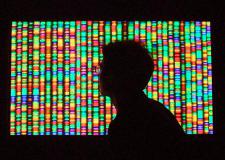20 years after the human genome was first sequenced, dangerous gene myths abound
By Philip Ball,
The Guardian
| 06. 09. 2021
Twenty years ago, the science journal Nature published the first draft of the human genome: the sequence of chemical “letters” on the gene-bearing DNA of our chromosomes. The Human Genome Project (HGP) had laboured for a decade to read this coded information. In a White House press conference in 2000, Francis Collins, who led the project as director of the US National Human Genome Research Institute, waxed biblical, calling the human genome “our own instruction book, previously known only to God”.
The HGP has huge potential benefits for medicine and our understanding of human diversity and origins. But a blizzard of misleading rhetoric surrounded the project, contributing to the widespread and sometimes dangerous misunderstandings about genes that now bedevils the genomic age.
So far, there have been few attempts to set the record straight. Even now, the National Human Genome Research Institute calls the HGP an effort to read “nature’s complete genetic blueprint for building a human being” – the “book of instructions” that “determine our particular traits”. A genome, says the institute, “contains all of the information needed to...
Related Articles
By Scott Solomon, The MIT Press Reader | 02.12.2026
Chris Mason is a man in a hurry.
“Sometimes walking from the subway to the lab takes too long, so I’ll start running,” he told me over breakfast at a bistro near his home in Brooklyn on a crisp...
By Katrina Miller, The New York TImes | 02.05.2026
Joseph Yracheta: The Native Biodata Consortium is the first nonprofit data and sample repository within the geographic bounds and legal jurisdiction of an American Indian nation, on the Cheyenne River Sioux Reservation in Eagle Butte, S.D.
NativeBio participated in a ...
By David Jensen, California Stem Cell Report | 02.10.2026
Touchy issues involving accusations that California’s $12 billion gene and stem cell research agency is pushing aside “good science” in favor of new priorities and preferences will be aired again in late March at a public meeting in Sacramento.
The...
By Lauren Hammer Breslow and Vanessa Smith, Bill of Health | 01.28.2026
On Jan. 24, 2026, the New York Times reported that DNA sequences contributed by children and families to support a federal effort to understand adolescent brain development were later co-opted by other researchers and used to publish “race science”...




